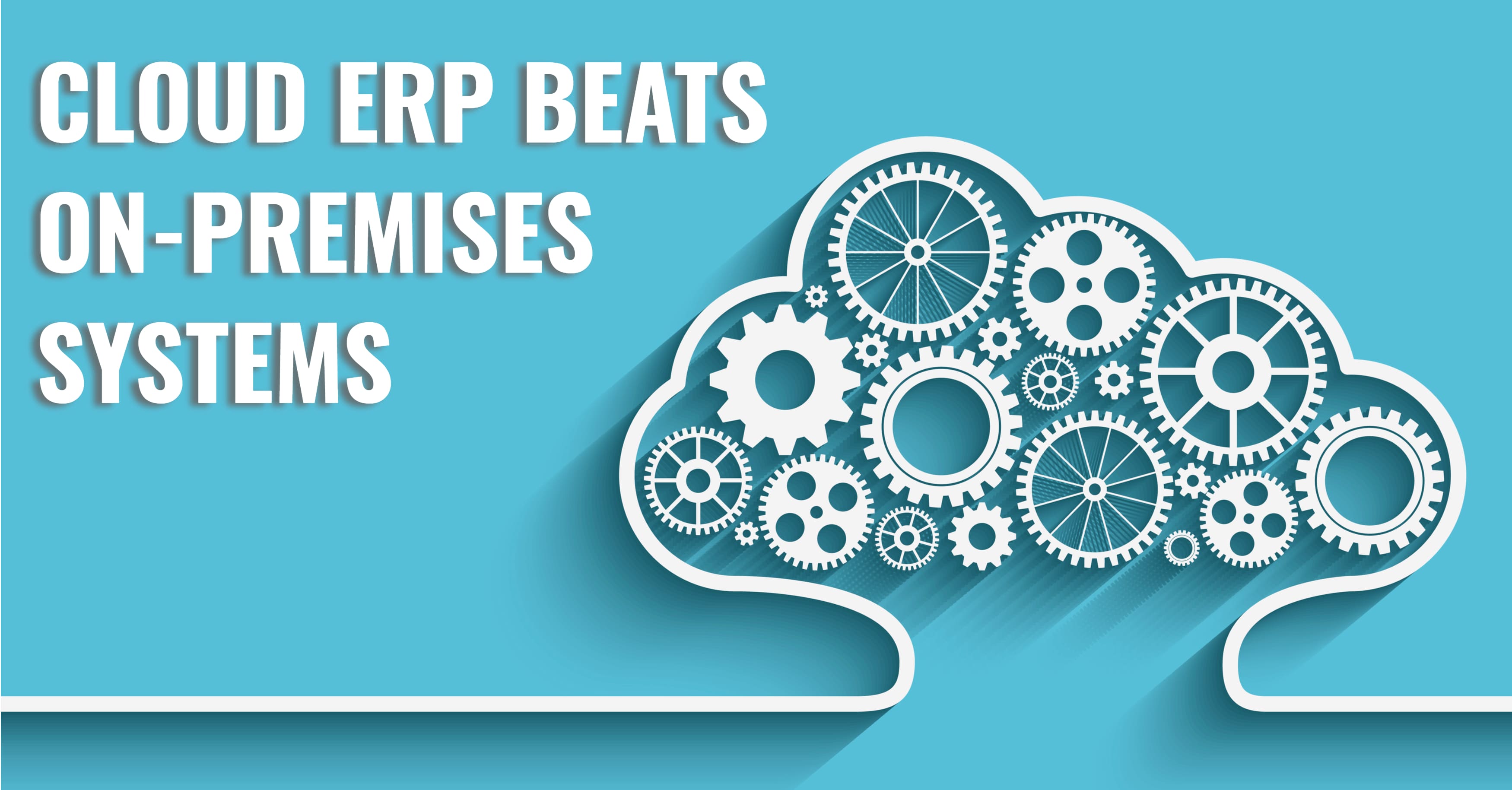
Cloud vs. On-Premises ERP
When you hear the word “cloud,” what do you picture? Before cloud computing became a buzzword just this century, software and technology were probably the furthest things on your mind. This seeming disconnect between clouds and technology is one of the reasons why there has been confusion and even concern over cloud computing.
However, most of this concern has dissipated in recent years. In 2017, cloud computing revenue exceeded $250 billion. As businesses continue to pursue digital innovations and replace their legacy enterprise resource planning (ERP) software, this number will surge. But what accounts for this increasing transition to the cloud? Are the benefits really that great?
Actually, they are. Nucleus Research found that cloud deployments offer over three times the return on investment (ROI) as traditional, on-premises deployments. ERP systems were once the exclusive property of large enterprises, but cloud hosting has leveled the playing field, giving small to midsize businesses (SMBs) new opportunities to improve their operations and plan for growth. In this piece, we explain the differences between on-premises and cloud-deployed ERP instances and why the cloud is the way to go.
What is Cloud ERP?
The cloud serves as a metaphor for the Internet. Cloud-hosted software, therefore, refers to programs and data that are stored and accessed over the Internet. In contrast, an on-premises (or on-site) system is hosted on the hardware of the organization using the software.
It makes sense that some businesses still trust on-premises software over cloud-hosted systems. The Internet itself often feels mysterious to us, and the image of a cloud emphasizes this mystery, conjuring visions of shadows or darkness. It can even remind us of natural disasters and thunderstorms.
But let’s think of clouds in a different light: clouds can take an endless variety of shapes and sizes, growing and changing overtime. Consider this image as we explore some of the key advantages of cloud-hosted ERP.
Cloud ERP Advantages
Cost and Ease
Implementing an on-site ERP instance requires extensive front-end costs and effort. Once your IT department has taken the time to install your expensive hardware, it now has to take care of upgrades, maintenance and customizations. These costs add up, making it difficult to generate ROI. A cloud-hosted implementation, on the other hand, doesn’t require hefty hardware costs. Your ERP instance can be up and running in no time. Furthermore, once it goes live, your cloud ERP vendor handles maintenance and upgrades for a low monthly fee.
Scalability and Flexibility
The rigidity of on-premises ERP comes with some serious downsides. As your company expands, so will your software demands. Each new location will require hardware, and your IT team will have to make major customizations to support more users and changing requirements. An inflexible ERP system can make your business less agile, possibly forcing you to downsize. Cloud systems, however, are built for growth and flexibility. Like clouds, they can easily change. The subscription model enables users to purchase services to fit new needs and support more users. You should never have to change your company in accordance with your software’s capabilities; cloud ERP adapts to your business, allowing you to expand and stay on top of industry demands.
Security
Though businesses are often anxious to store critical information in the cloud, it turns out that cloud systems offer several security advantages. Some businesses are able to dedicate an entire team to protecting a large volume of sensitive data stored on site. But most businesses, especially those on the smaller side, lack the resources and expertise to adequately secure their data. Cloud vendors take extensive measures to protect their customers’ data, providing sophisticated disaster recovery plans and around-the-clock support. Additionally, you don’t have to fear a giant storm damaging your servers; your data stays safe in the cloud, far from natural disasters.
Wrap Up
It’s no wonder that more businesses are turning to cloud ERP. Cloud computing empowers companies of all sizes to leverage robust ERP tools without exhausting their resources. Recognizing the demand for sophisticated cloud solutions, Epicor recently unveiled its partnership with Microsoft Azure to strengthen its cloud platforms. This new development shows Epicor’s commitment to continuously improve its ERP systems to satisfy users.
For over 20 years, Datix has offered an array of deployment options to support every unique business need. As an Epicor Platinum Partner, we know how to implement ERP solutions from start to finish. Unity, our integration platform, can also connect your software instances no matter if they’re hosted in the cloud or on-premises.
Your business isn’t static—your software shouldn’t be either. Reach out to Datix today to learn more about our cloud software solutions!
{{cta(‘770c1544-d87d-4acb-9fc4-7a25e1385094′,’justifycenter’)}}

